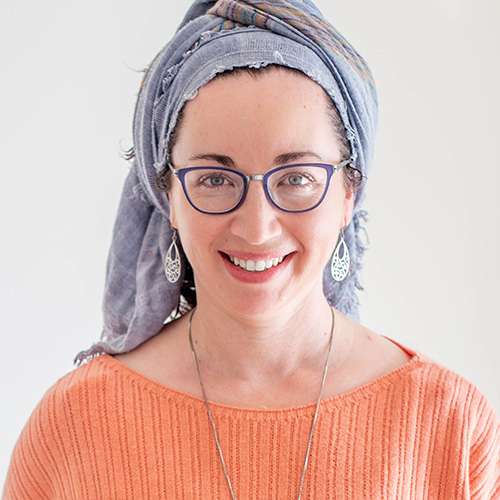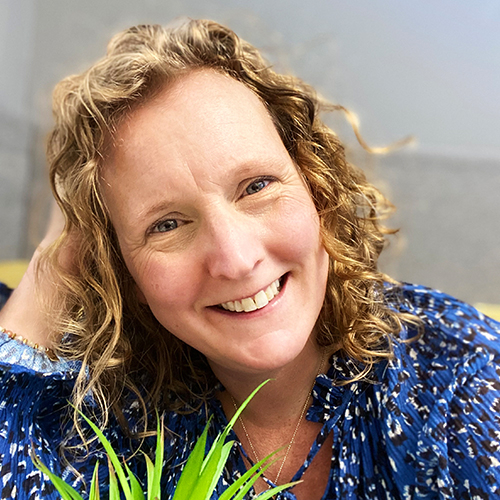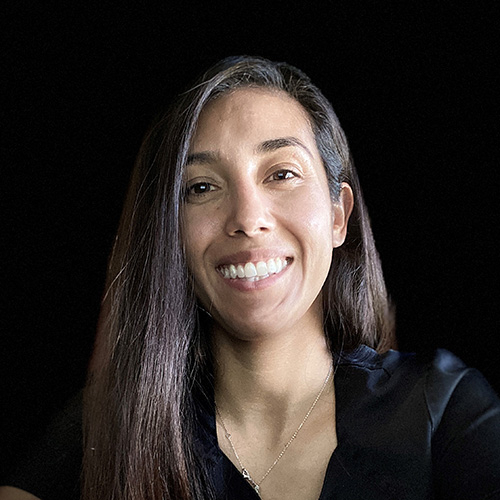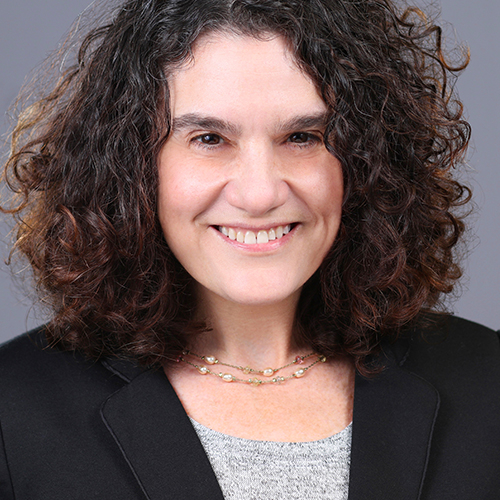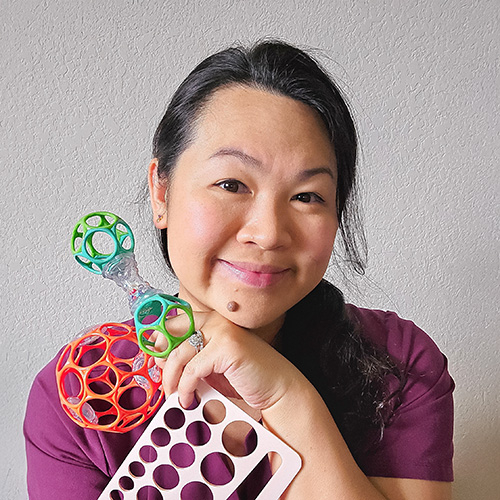 Infant Development and Breastfeeding: The Body–Brain Connection Lecture Pack
Infant Development and Breastfeeding: The Body–Brain Connection Lecture Pack
Breastfeeding shapes infant development in profound ways that go far beyond just being a source of nutrition. Learn more about the powerful relationship that exists between the breastfeeding dyad in this 6-hour special focus package that explores the latest research. It weaves together neurodevelopment, sensory integration, physiology, attachment, and infant mental health to illuminate the whole-body, whole-brain impact of breastfeeding.
*To purchase this lecture pack along with the main conference, you may add it when registering for the conference, or anytime afterwards (during the conference period).
*Only those registering for the main conference, or have registered for the main conference will have the ability to purchase this lecture pack. You will have the opportunity to purchase this add-on at the time of conference registration, or anytime afterwards (during the time of the conference).
- Quick View:
- Educational Credits
- Pricing
- Details
- REGISTER
 Educational Credits
Educational Credits
This Add-on Lecture Pack offers 6 hours of education. CERPs, CMEs, Nurse Contact Hours and Midwifery Contact Hours (1 CEU is equivalent to 0.1 MEAC CEU) are applied for. Credits are cross recognized for those requiring Dietetic CPEUs. Learn more about the continuing education credits here.
 Infant Development and Breastfeeding: The Body–Brain Connection Lecture Pack Purchase Details
Infant Development and Breastfeeding: The Body–Brain Connection Lecture Pack Purchase Details
Registration: Save the date! Early Bird Registration opens January 14, 2026.
(Currently only available to GOLD Lactation Online Conference 2026 Participants.)
Presentations Access: Starting April 1, 2026 & will be available to view on-demand until July 31, 2026 (August 21 for GOLD Annual Members)
Country Category, Group & Institutional Discount Pricing are available.
Looking to create a group? View our new Group Registration Benefits & Group Coordinator Tools.
Individual Registration
|
Group Registration (10+)
|
|||
|---|---|---|---|---|
| Early Bird | Regular | Early Bird | Regular | |
| ACountry Category | $90 | $110 | $80 | $100 |
| BCountry Category | $40 | $50 | $30 | $40 |
| C & DCountry Category | $20 | $25 | $15 | $20 |
| What is my Country Category?All Prices in $USD |
Save the Date! Early Bird Registration Opens January 14, 2026. | |||
 Add-on Purchase Details
Add-on Purchase Details
- Group Registration: Pricing above is per person. Group rates for the Infant Development and Breastfeeding: The Body–Brain Connection Lecture Pack will be offered to members at the time of Main Conference Registration Only. As long as you have a group of 10+ members when you register for GOLD Lactation Conference, your members will have the option to purchase the add-on. Not all group members are required to purchase the add-on to qualify for group discount pricing. Groups members may choose to purchase the add-on after their conference registration however they will be charged the individual rate at that time.
Registering for the add-on is easy! You will be prompted to select this add-on package when registering for GOLD Lactation conference. You may also purchase this add-on lecture pack anytime during the time of the conference.
Should you have any questions about this special package, please contact us.
Important! Test Your Technology...
1. Please read our Terms and Conditions
2. Take our Technology Test to ensure your computer meets the conference requirements
By registering, you agree to the terms and conditions and have confirmed that your computer is suitable.
If your computer does not pass the Technology Test it is not advisable to register until the possible problem is resolved. Click here for more information or contact us for technical support at [email protected].Registration Categories
As an international conference, we are sensitive to the fact that not all countries are economically equal. As breastfeeding advocates we recognise that people in these countries generally have the most need for this information and limited resources, which is why in addition to our standard registration options, this year we are offering a special registration fee for residents from countries that fall in Cat. B, C & D. The Categories are based off of the World Bank Data. Please view our Reduced Rate Terms. Proof of residency maybe required.
Category A:
Andorra, Antigua and Barbuda, Aruba, Australia, Austria, Bahamas, Bahrain, Barbados, Belgium, Bermuda, British Virgin Islands, Brunei Darussalam, Canada, Cayman Islands, Channel Islands, Chile, Curacao, Cyprus, Czech Republic, Denmark, Estonia, Faroe Islands, Finland, France, French Polynesia, Germany, Gibraltar, Greece, Greenland, Guam, Hong Kong, Hungary, Iceland, Ireland, Isle of Man, Israel, Italy, Japan, Rep. Korea, Kuwait, Latvia, Liechtenstein, Luxembourg, Macao, Malta, Monaco, Netherlands, New Caledonia, New Zealand, Northern Mariana Islands, Norway, Oman, Palau, Poland, Portugal, Qatar, San Marino, Saudi Arabia, Seychelles, Singapore, Saint Maarten (Dutch part), Slovak Republic, Slovenia, Spain, St. Kitts and Nevis, St. Martin (French part), Sweden, Switzerland, Taiwan, Trinidad and Tobago, Turks and Caicos Islands, United Arab Emirates, United Kingdom, United States, Uruguay, Virgin Islands (U.S.). TOP
Category B:
Albania, Algeria, American Samoa, Argentina, Azerbaijan, Belarus, Belize, Bosnia and Herzegovina, Botswana, Brazil, Bulgaria, China, Colombia, Costa Rica, Croatia, Cuba, Dominica, Dominican Republic, Ecuador, Equatorial Guinea, Fiji, Gabon, Grenada, Guyana, Iran (Islamic Rep.), Iraq, Jamaica, Kazakhstan, Lebanon, Libya, Lithuania, FYR Macedonia, Malaysia, Maldives, Marshall Islands, Mauritius, Mexico, Montenegro, Namibia, Nauru, Panama, Paraguay, Peru, Romania, Russian Federation, Samoa, Serbia, South Africa, St. Lucia, St. Vincent and the Grenadines, Suriname, Thailand, Tonga, Turkey, Turkmenistan, Tuvalu, RB Venezuela. TOP
Category C:
Angola, Armenia, Bangladesh, Bhutan, Bolivia, Cabo Verde, Cambodia, Cameroon, Cote d'Ivoire, Djibouti, Egypt, Arab Rep., El Salvador, Georgia, Ghana, Guatemala, Honduras, India, Indonesia, Jordan, Kenya, Kiribati, Kosovo, Kyrgyz Republic, Lao PDR, Lesotho, Mauritania, Micronesia, Fed. Sts., Moldova, Mongolia, Morocco, Myanmar, Nicaragua, Nigeria, Pakistan, Papua New Guinea, Philippines, Sao Tome and Principe, Solomon Islands, Sri Lanka, Sudan, Swaziland, Timor-Leste, Tunisia, Ukraine, Uzbekistan, Vanuatu, Vietnam, West Bank and Gaza, Zambia. TOP
Category D:
Afghanistan, Benin, Burkina Faso, Burundi, Central African Republic, Chad, Comoros, Dem. Rep. Congo, Eritrea, Ethiopia, The Gambia, Guinea, Guinea-Bissau, Haiti, Dem. People's Rep. Korea, Liberia, Madagascar, Malawi, Mali, Mozambique, Nepal, Niger, Puerto Rico, Rep. Congo, Rwanda, Senegal, Sierra Leone, Somalia, South Sudan, Syrian Arab Republic, Tajikistan, Tanzania, Togo, Uganda, Rep.Yemen, Zimbabwe.TOP
 Dr. Speakers Full Name
Speaker Credentials
Dr. Speakers Full Name
Speaker Credentials

Annet Mulder first became interested in breastfeeding in the year 2000, when she became a mother for the first time. During and because of her own breastfeeding experiences, in 2002 she became a volunteer with the Dutch breastfeeding Organization and in 2008 sat for and passed the exam administered by the International Board of Lactation Consultant Examiners. As an International Board Certified Lactation Consultant, she now
Annet Mulder first became interested in breastfeeding in the year 2000, when she became a mother for the first time. During and because of her own breastfeeding experiences, in 2002 she became a volunteer with the Dutch breastfeeding Organization text text text text more name mulder first became interested in breastfeeding in the year 2000, when she became.
 Dr. Speakers Full Name
Speaker Credentials
Dr. Speakers Full Name
Speaker Credentials


